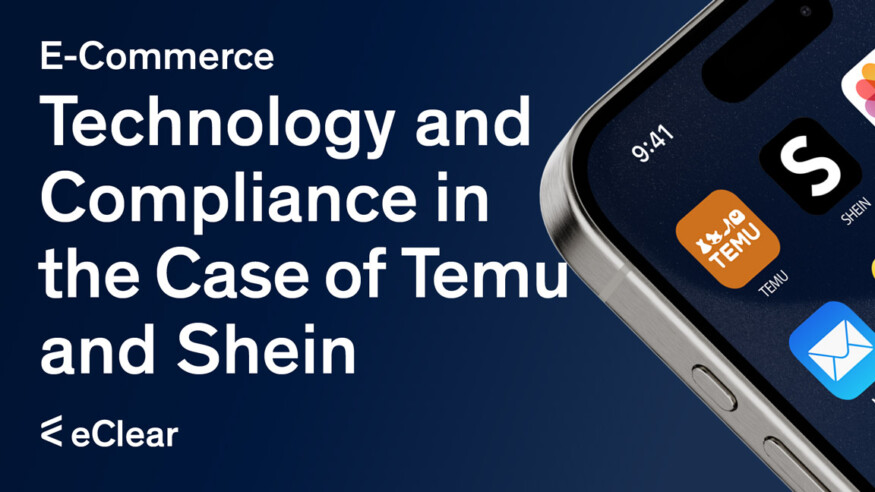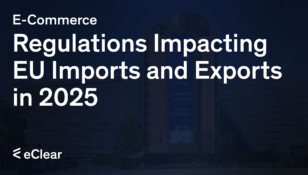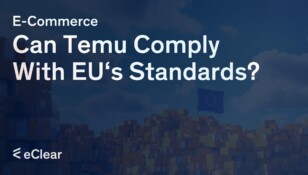On December 13th 2024 EU’s GPSR (General Product Safety Regulations) will take full effect, demanding from e-commerce platforms like Temu or Shein to react. GPSR requires that all consumer products on the EU markets are safe, and it establishes several obligations for businesses to ensure it.
The EU’s Compliance Dilemma
The EU represents a major market for Chinese e-commerce platforms, offering lucrative opportunities for big marketplaces like Temu. Each day, a big wave of shipments is entering the EU. The volume is so high, that manual processes can’t cope with them anymore.
On the one hand, the EU doesn’t want to ban these international trading opportunities, but on the other hand they are obligated to protect their citizens from potential dangerous or counterfeit products.
“Neither European nor German lawmakers are able to fully enforce their regulations against Chinese companies.” explains Stephan Tromp, Vize-Hauptgeschäftsführer of Handelsverband Deutschland (HDE), to Deutsche Presse-Agentur.
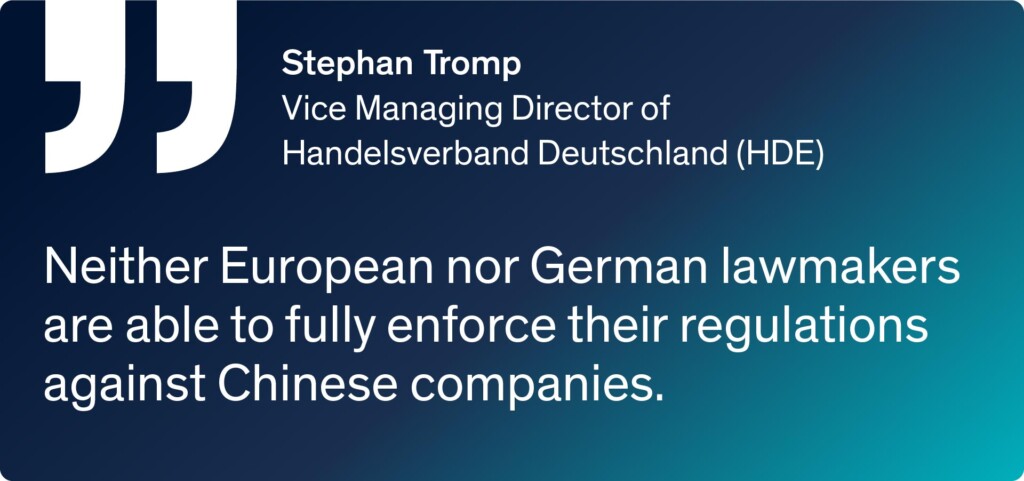
Technology as a Compliance Enabler
Rather than solely relying on strict bans and regulations, the EU understands that it benefits from integrating advanced technological solutions to enforce compliance more effectively.
Parts of the EU parliament demand that the EU customs reform, dealing with issues like high volume low-value-goods and digital solutions in customs, should be accelerated. The first steps of the customs reform are planned for 2028 as of now.
In the interim, authorities struggle to enforce existing regulations effectively, creating opportunities for platforms to circumvent compliance.
Andreas Schwab of the EVP-Fraction put it this way: “We still have 27 different customs systems, even though a uniform European customs law must be applied. However, it is unfortunately applied differently. And we have market surveillance authorities, which are all nationally controlled and vary in strength.“
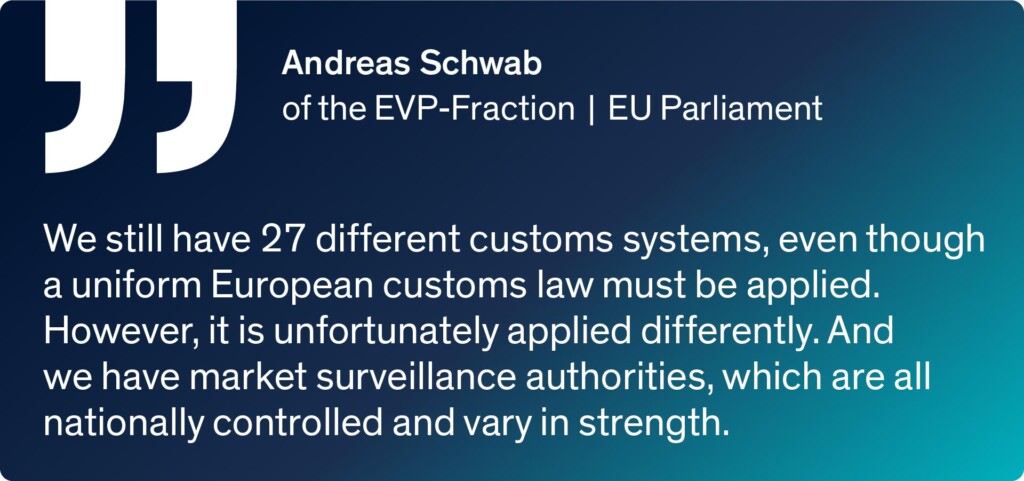
How Temu is Reacting to the EU’s Accusations
On 31 May 2024, Temu was classified as a Very Large Online Platform (VLOP) under the EU’s Digital Services Act (DSA), based on its declaration of over 45 million monthly active users within the EU.
EU trade representatives and politicians speak of unfair competitive conditions and a lack of oversight regarding the platform. They mention especially that the €150 customs exemption threshold operates as a legal loophole for the sellers on their marketplace. The platform rejects such accusations.
On the formal proceedings to assess whether Temu might have breached the Digital Services Act, the platform reacts quite open.
Temu states that it takes its obligations seriously and continuously invests to strengthen its regulatory system and protect consumer interests on its platform. The company stated: “We will fully cooperate with regulatory authorities to support our shared goal of a safe and trustworthy marketplace for the consumer.”
Necessary Steps for Chinese E-commerce Giants
To remain competitive and avoid escalating trade tensions, platforms like Temu and Shein must adopt proactive measures to align with the EU’s requirements.
These steps include enhancing their regulatory frameworks (especially on handling fraudulent seller accounts), data quality and transparency, and ensuring that product information meets EU standards.
Leveraging technological advancements could help streamline these efforts, enabling faster adaptation to evolve EU regulations. These include automated compliance checks, real-time data monitoring, and AI-driven quality control.
As the EU is likely to introduce even stricter measures in the near future, adopting these technologies can provide Chinese platforms with the agility needed to maintain their market presence in the EU.
How eClear Supports Compliance Efforts
With eClear, businesses can confidently address EU regulatory requirements and focus on growth in the European market.
We enable importers to navigate complex regulatory demands. Our platform provides full-service customs clearance, manages VAT adherence, and enhances transparency, helping businesses align with EU standards efficiently.
Let’s stay in touch!
Stay up to date on the latest market trends, best practices and regulatory changes affecting cross-border trade by following us on LinkedIn.
